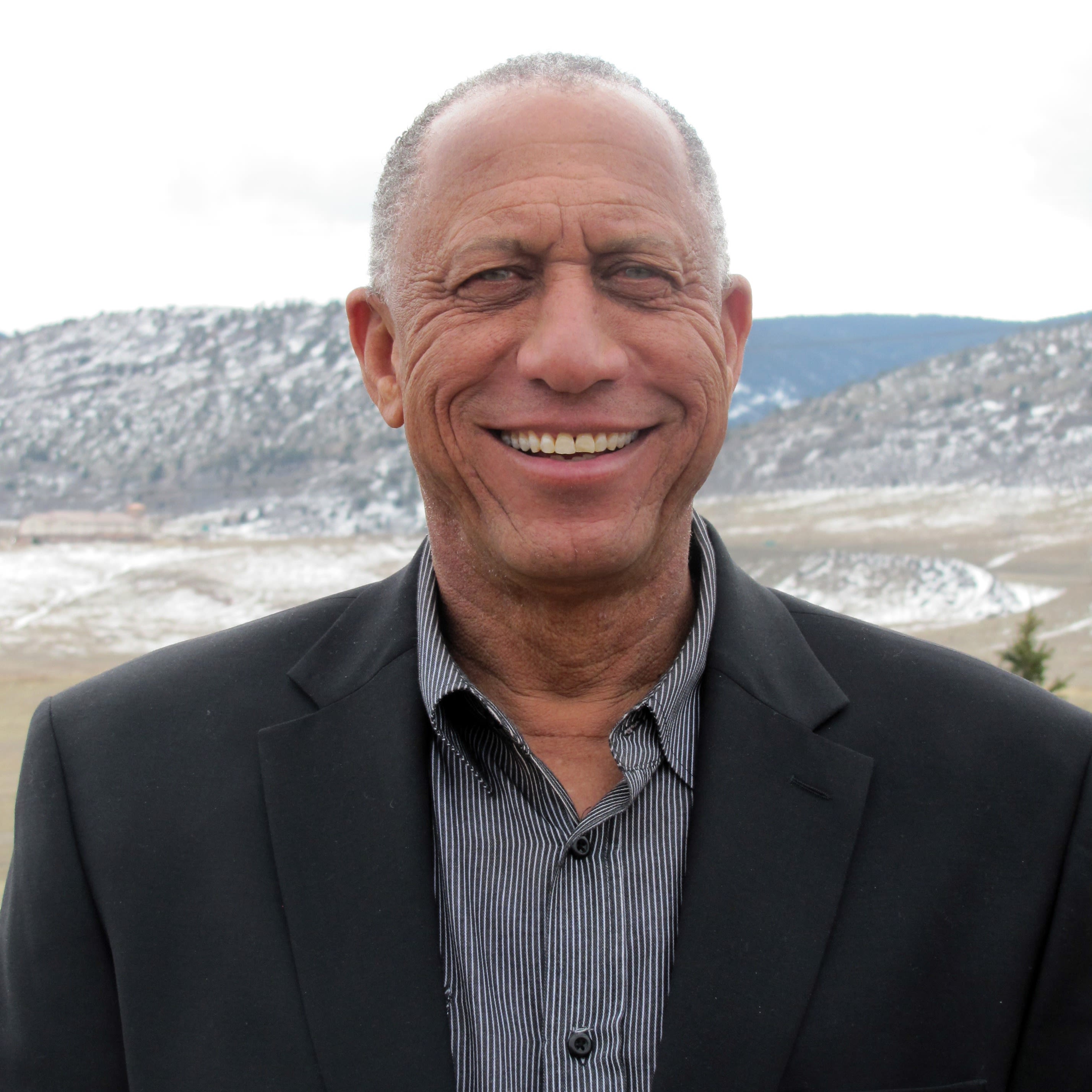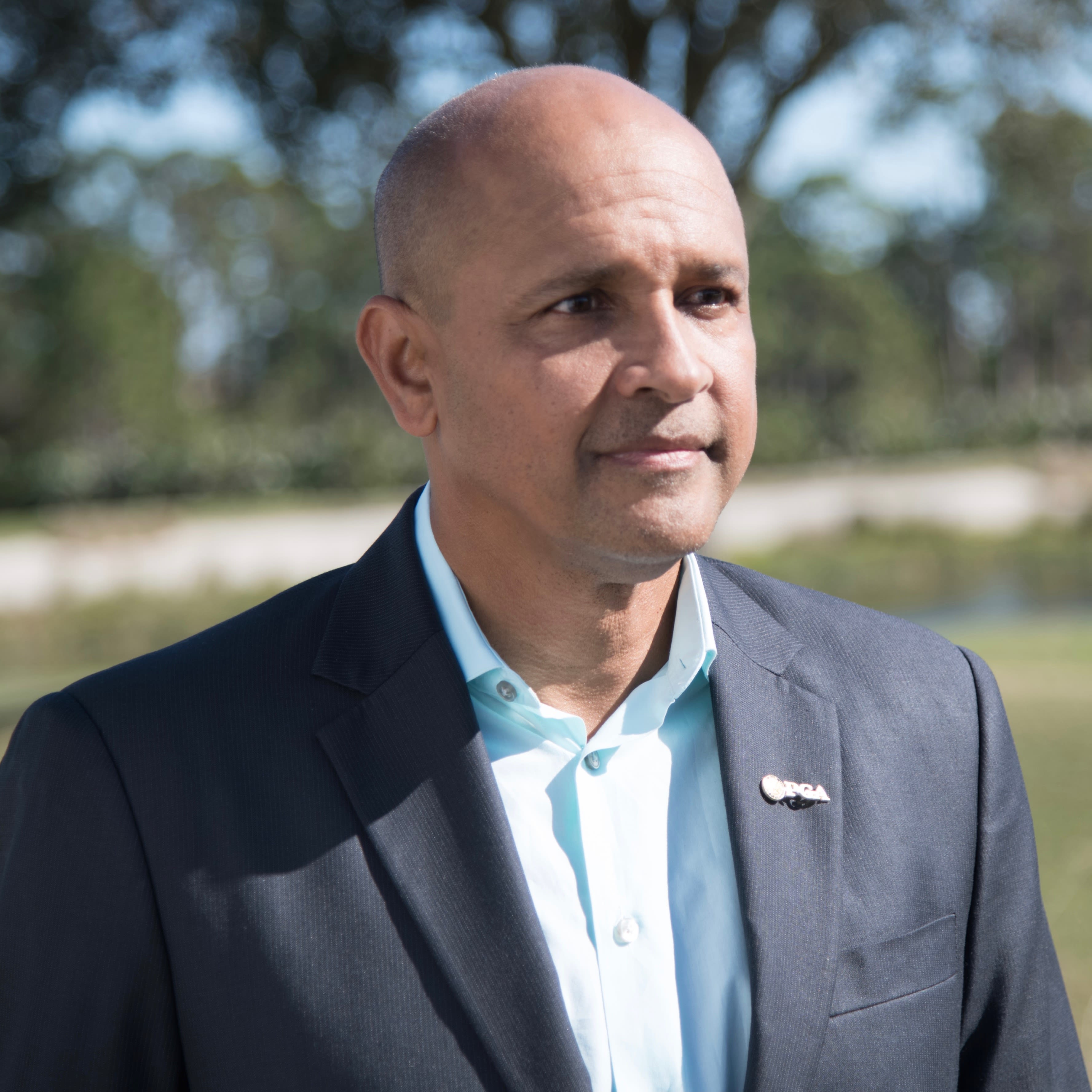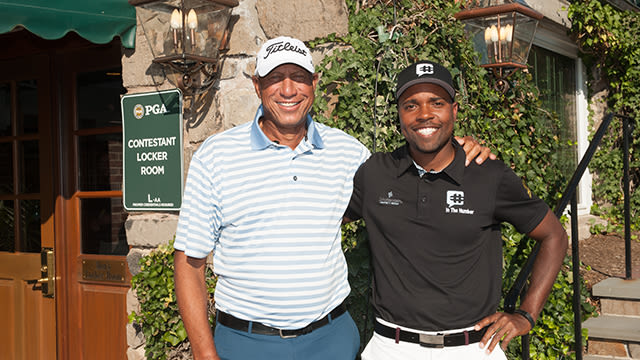Game Changers
Five Black PGA Professionals Honored as the APGA Tour Knocks on the Door of Inclusion
By Michael Abramowitz
Published on

Clay Myers II, PGA
A knock on the door of opportunity opens a window of hope. It’s what everyone wishes for...a defining moment to prove that you belong.
A golden opportunity to pursue a dream is at the heartbeat of the APGA Tour (Advocates Professional Golf Association), a diversity-focused mini-tour. Whether it’s playing on the PGA TOUR, becoming a PGA Member, or working in one of the approximately 2 million job opportunities the industry delivers, the APGA Tour serves as an emerging gateway to a diverse and inclusive future.
While alumni like Tony Finau and Harold Varner III have certainly made names for themselves on the PGA TOUR, there are five PGA Professionals who connected with the APGA Tour at varying stages of their careers, to open doors for either themselves or for others walking along similar paths. As part of the 2021 APGA Black History Month Classic at PGA Golf Club in Port St. Lucie, Florida, Tom Woodard, Wyatt Worthington II, Kennie Sims, Clay Myers II, and Doug Smith will be honored Feb. 19-21, for advancing the cause of diversity in the sport.
A Brand New PGA Member
Myers, the First Assistant Golf Professional at Irving Country Club near Dallas, was elected to PGA Membership on February 3. He spent two years pursuing his dream.
After being congratulated, Myers exclaimed, “You’re going to make me cry. I worked so hard. I think it was the hardest thing I had to work for...For me to become a PGA Member is the greatest achievement.”
He credits the APGA Tour in helping him realize what PGA Membership could mean. Myers, a 2012 Jackson State University graduate, is the first Black member in his Section to be elected in approximately 15 years, and he wants to make sure the next arrives much sooner.
“That’s my goal - not only to play competitively but to get more Blacks to become PGA Members.”
It’s a pipeline that only dreams can tap.
“The APGA Tour represents access,” Myers explained. “It’s access to sponsors. It’s access to the PGA of America. It’s access to the PGA Tour.”

Tom Woodard, PGA
Woodard, a member of two Halls of Fame, had what he describes as a “modestly successful” career on the PGA TOUR, after becoming the first Black golfer to earn All-America recognition, when he played for the University of Colorado in the 1970s. While Woodard believes the talent level is high, he estimates that a handful or two of current APGA players will eventually compete full-time on the PGA TOUR.
“What are the other players going to do?” Woodard asks rhetorically, the PGA Director of Golf at the Foothills Park and Recreation District in Denver, who competed on the APGA Tour as a Senior. “That’s where we come in. The reality is, if you don’t make it in your playing career, becoming a PGA Professional is not a bad way to go. I’ve had a really good career as a PGA Member. I get up and go to work at a golf course every day.”
Woodard sees the APGA Tour as a vehicle to inspire the next generation. “I want to serve as a role model.”
Coming of Age
When the APGA Tour started in 2010, the courses typically were municipal tracks that traced the history of Black golf. PGA Member Kennie Sims joined in with APGA Tour CEO Ken Bentley, Springfield College Professor Dr. Michael Cooper, and former PGA TOUR player Adrian Stills on the initial phone conversations that led to the creation of the Tour.

Kennie Sims, PGA
Sims, now the Vice President of Golf Operations for the Tampa Sports Authority, hosted the first-ever APGA Tour event at the city’s Rogers Park Golf Course. Willie Mack and Tim O’Neil were among the competitors.
Recently, Sims was watching golf on television when legendary CBS Sports Announcer Jim Nantz began to praise the success of the APGA Tour. To Sims, it was a defining moment. “For Jim Nantz to tell the world what the APGA is doing, this was a great new beginning.”
Doug Smith, who hosts two podcasts on golf, including one with Cheyenne Woods, also played in the first APGA Tour event at Rogers Park as an amateur. The municipal park course had cultural significance, as it was founded in 1947, for Blacks to congregate in the segregated South.

Doug Smith, PGA
“It was like the adult version of the Bill Dickey Invitational,” described Smith, the 2005 PGA Minority Collegiate Championship Individual Medalist, (now the PGA WORKS Collegiate Championship), and the first African-American to play for the University of Louisville golf team.
Through an agreement with the PGA of America and PGA Tour, the likes of Valhalla Golf Club, Torrey Pines, TPC Scottsdale and other world-class venues are now part of the Tour’s cross-country schedule. At each event, the PGA of America will offer the players access to a Career Consultant to help them plan for life outside the Tour and within the golf industry.
Dreamquest
PGA Member Wyatt Worthington II still dreams of playing on the PGA Tour, and he is on a quest to find a sponsor to help get him there. A generation apart, Woodard passed the torch to Worthington at the 2016 PGA Championship at Baltusrol Golf Club, as the only two African-American PGA Club Professionals to compete in a major championship that dates to 1916.

Wyatt Worthington II, PGA
Since then, Worthington has added two PGA Tournament Series wins to his resume, the first African-American to win in the event’s history. He has even taught the game at famed Seminole Golf Club. Still, he seeks a sponsor to help make his dream of competing on the PGA Tour a vision with a mission.
“The more opportunity, access and resources we get, the more chance we have to get inside the ropes,” said Worthington, a PGA Teaching Professional at The Golf Depot in Gahanna, Ohio.
He also envisions a game that will one day freely open its doors.
“This game should be nothing but welcoming and approachable from all walks of life, especially for people of color,” said Worthington.
All it takes is for someone to open the door.
